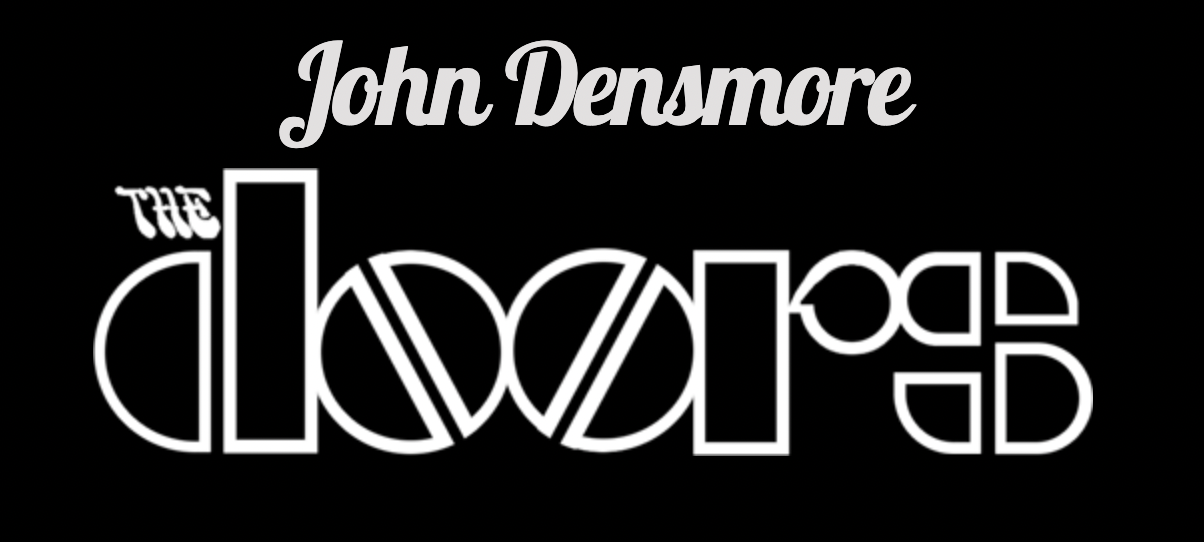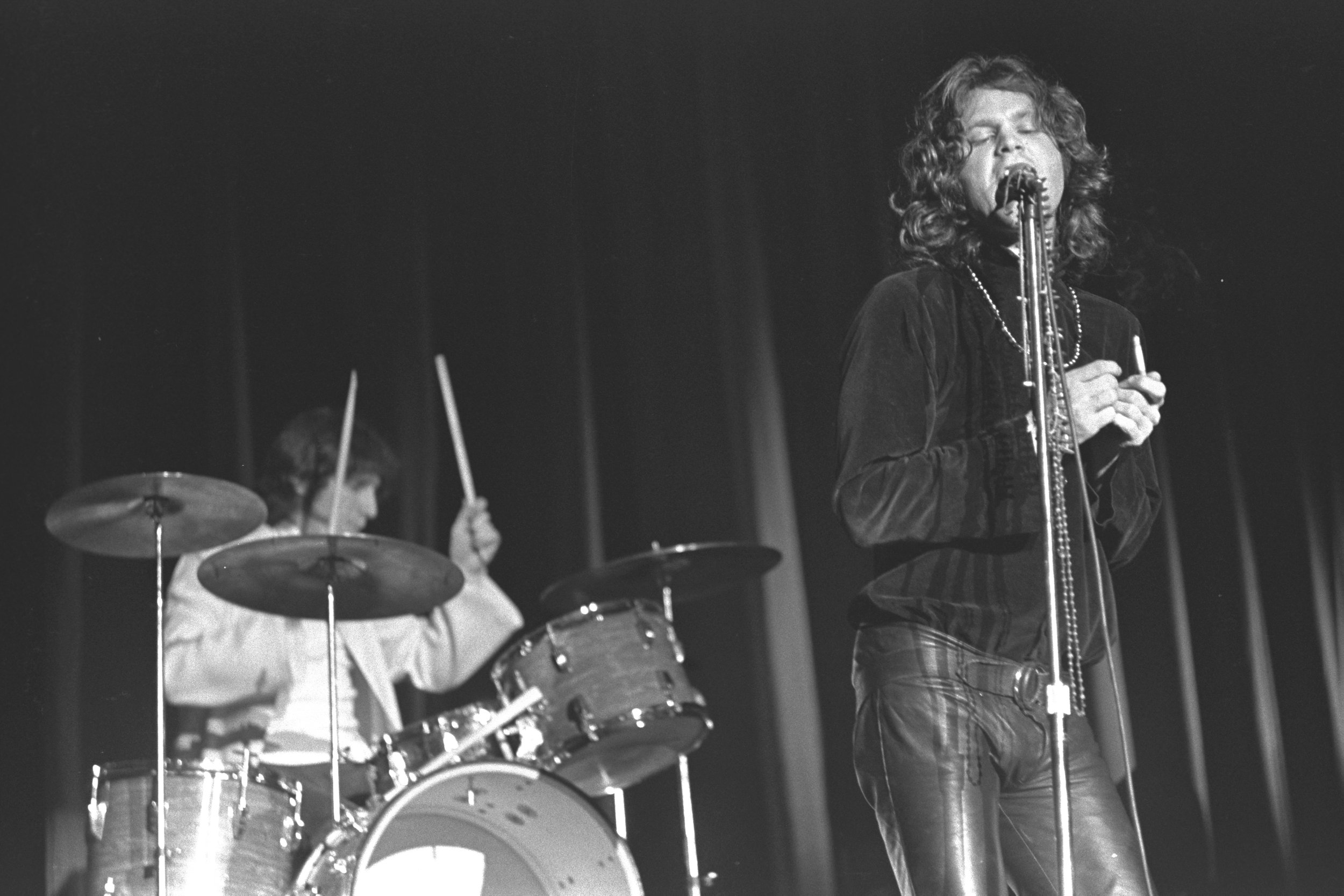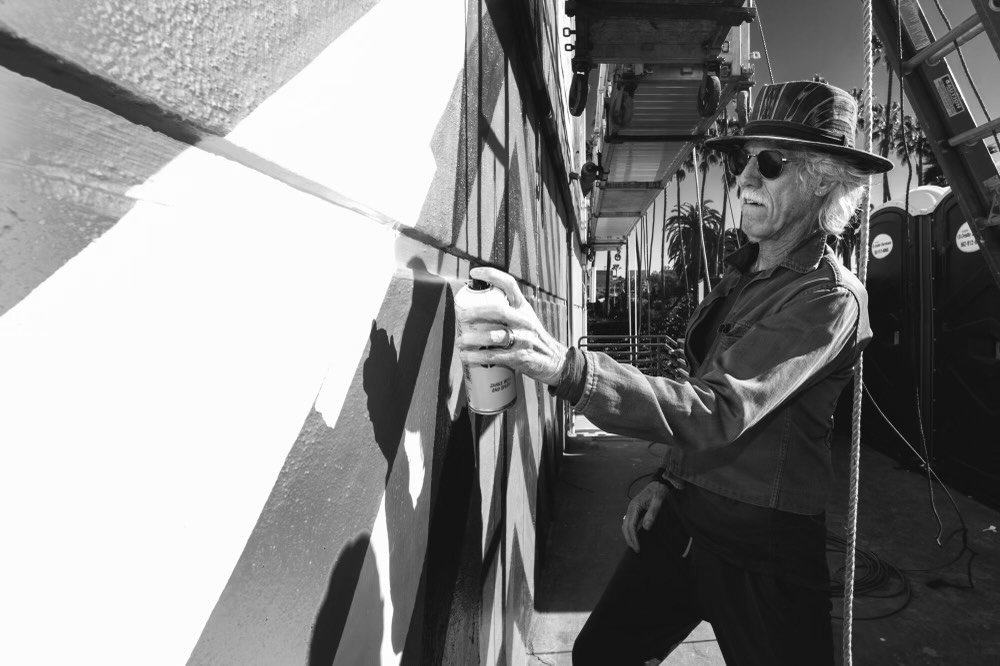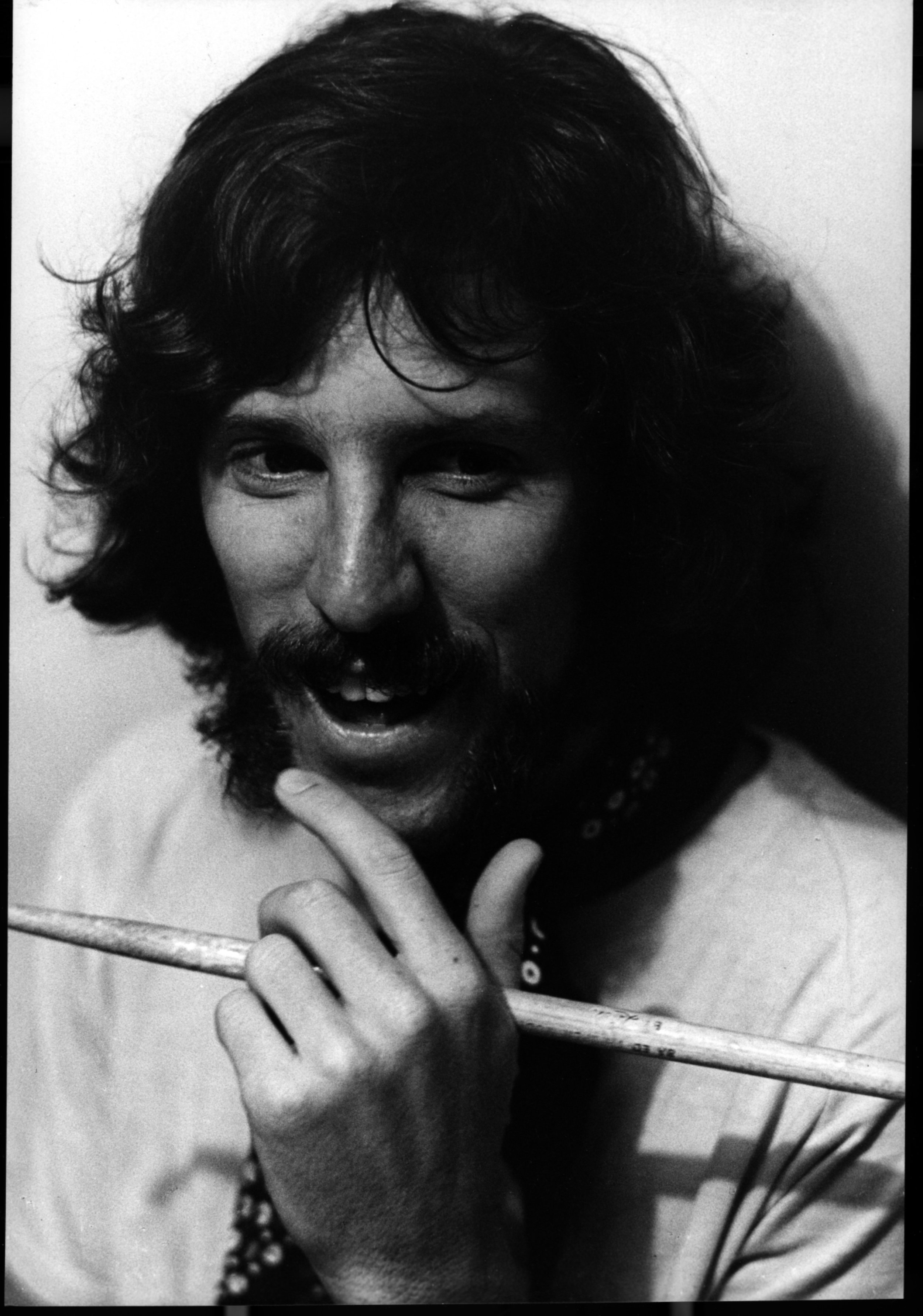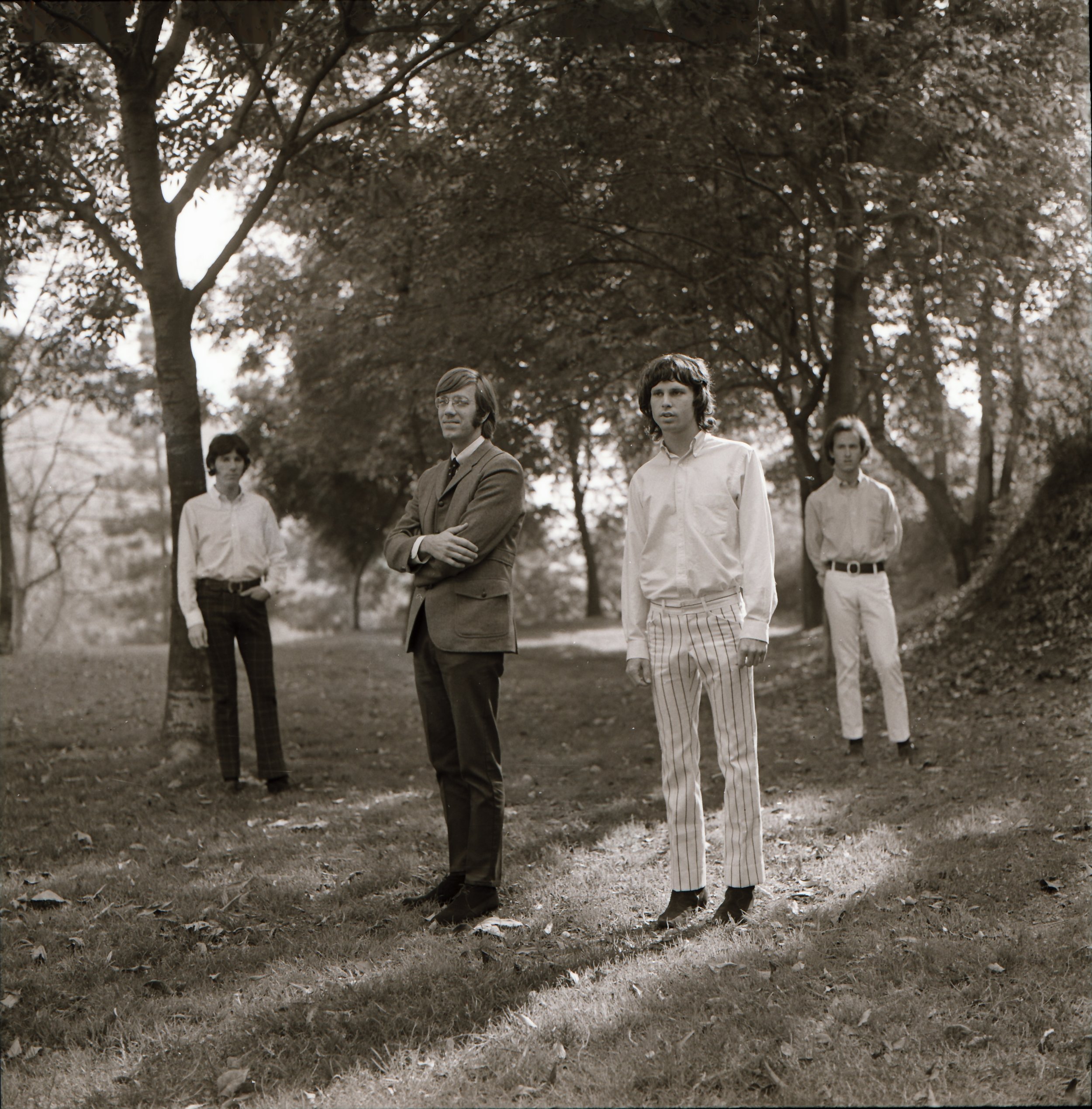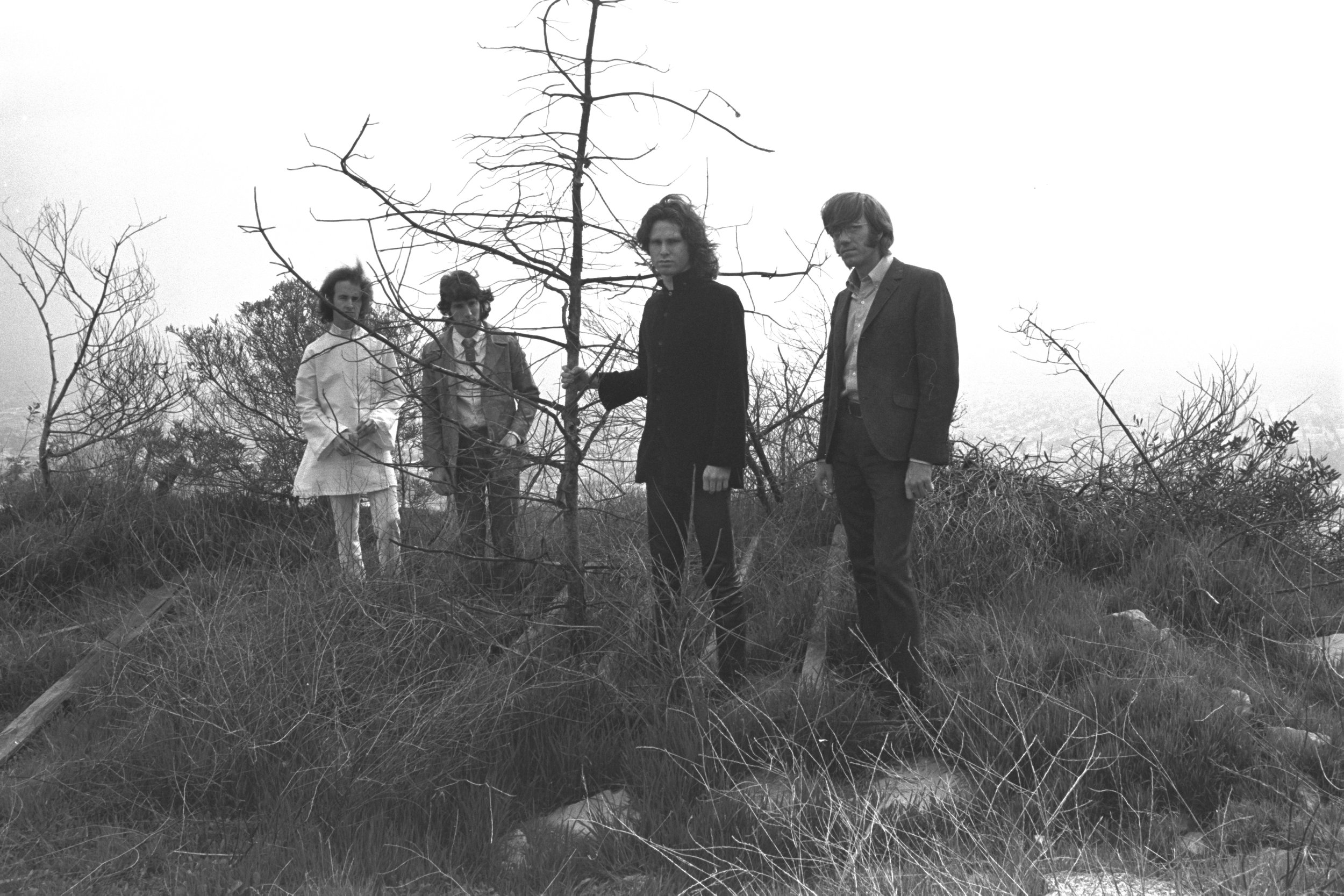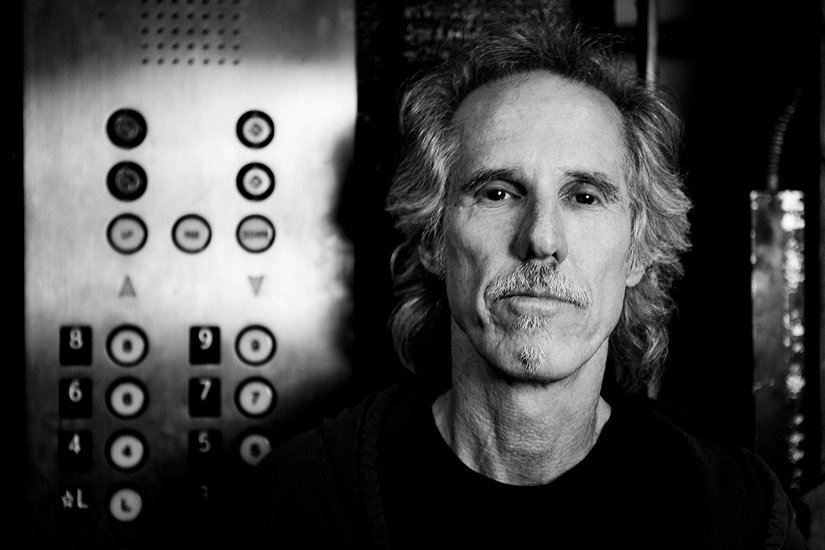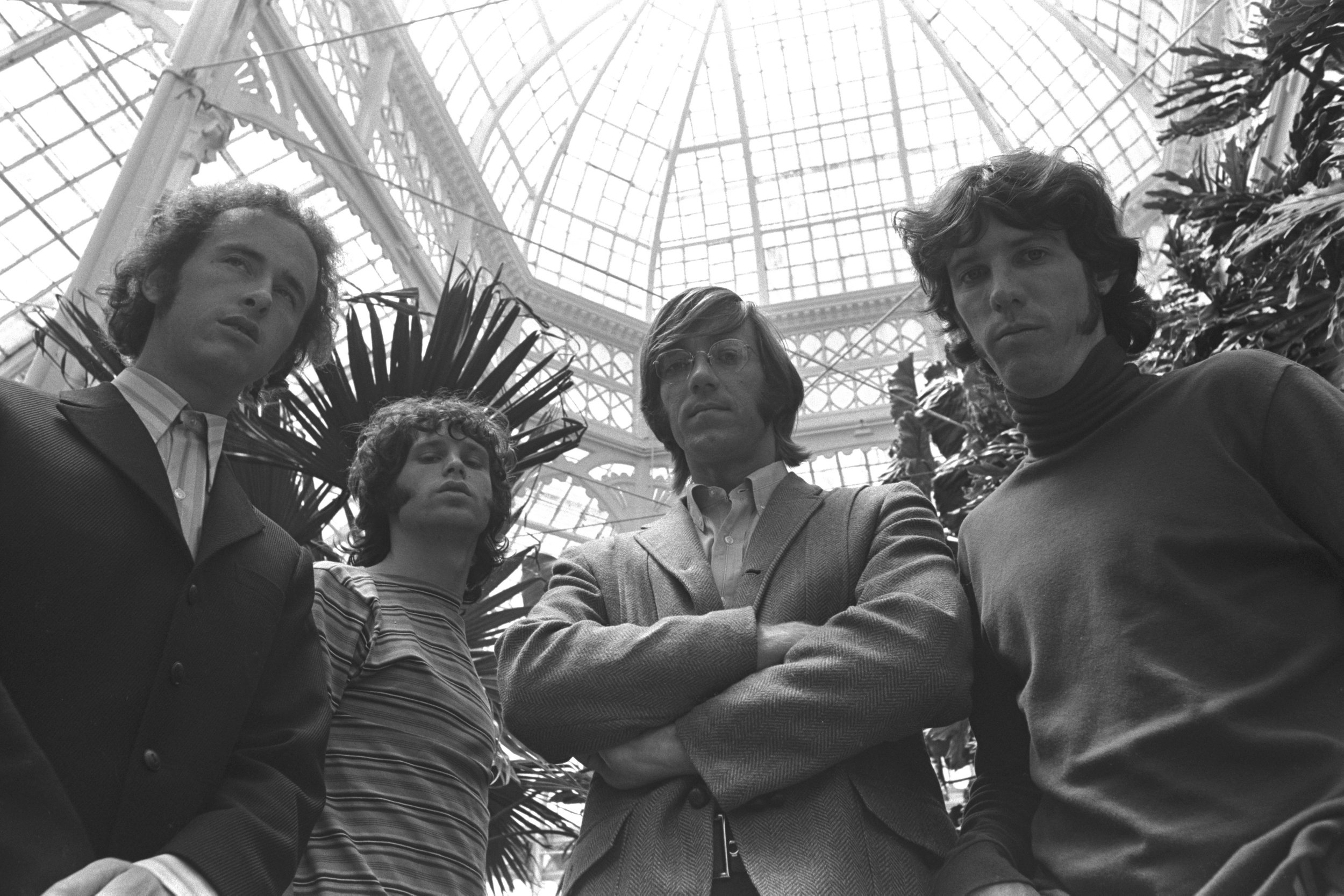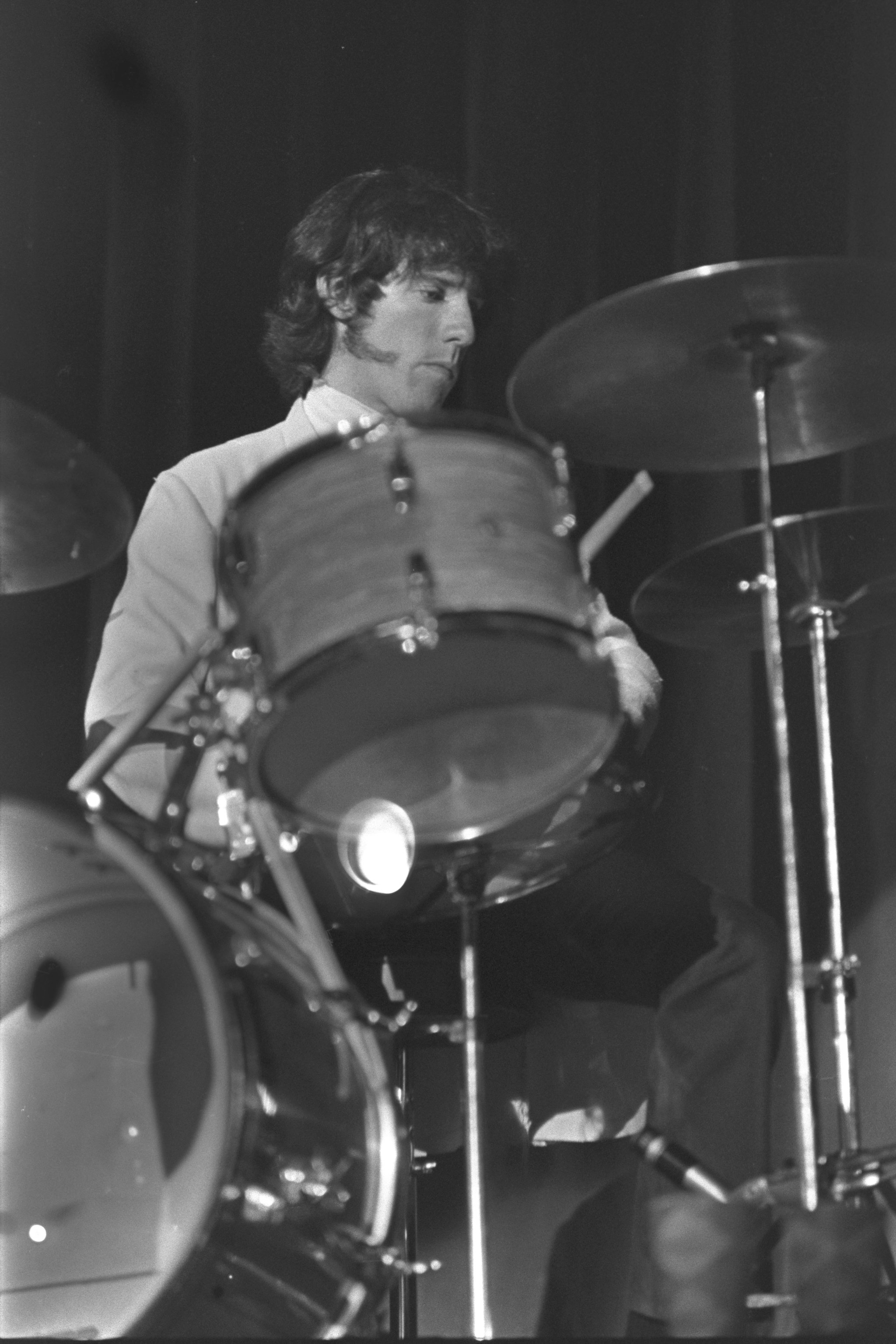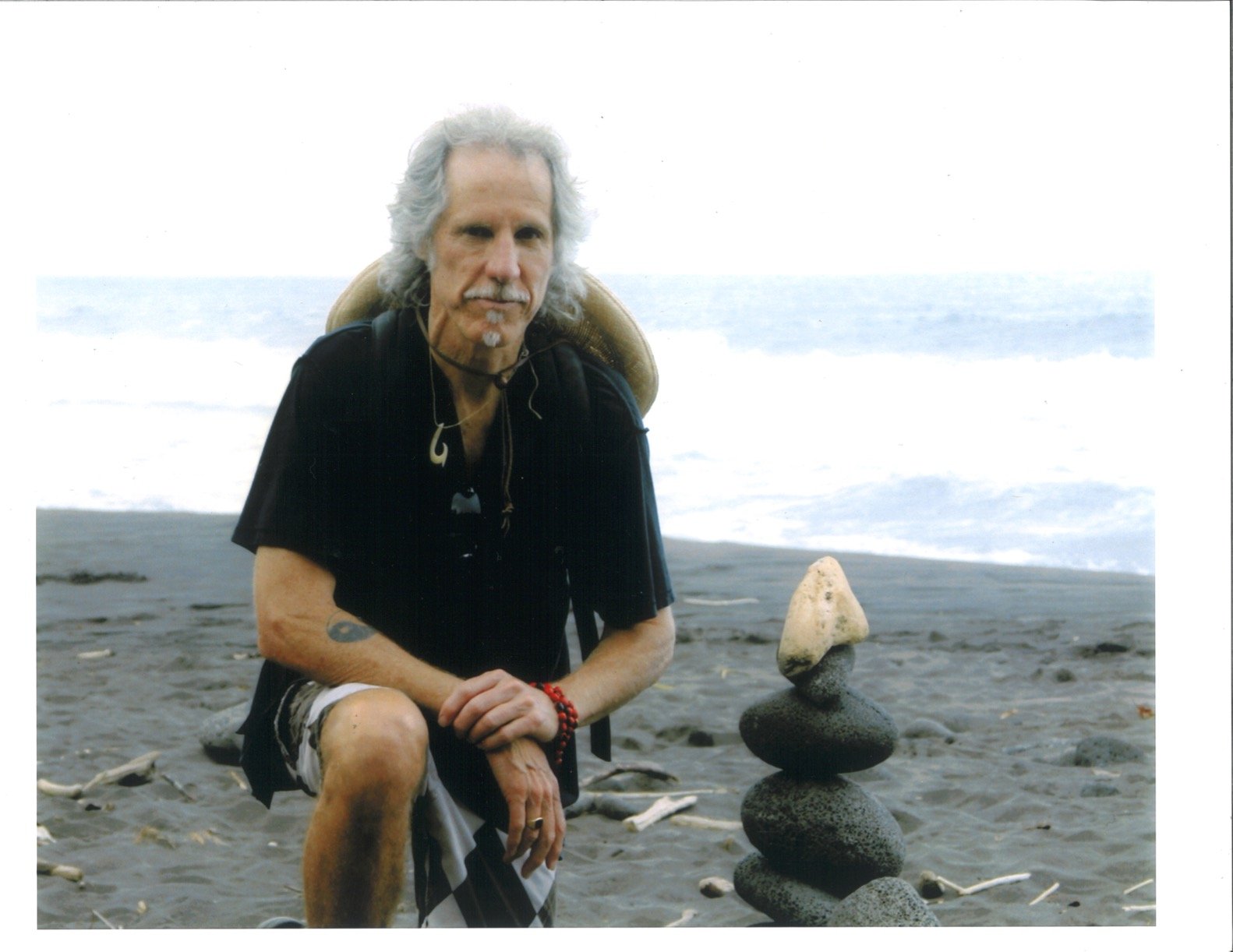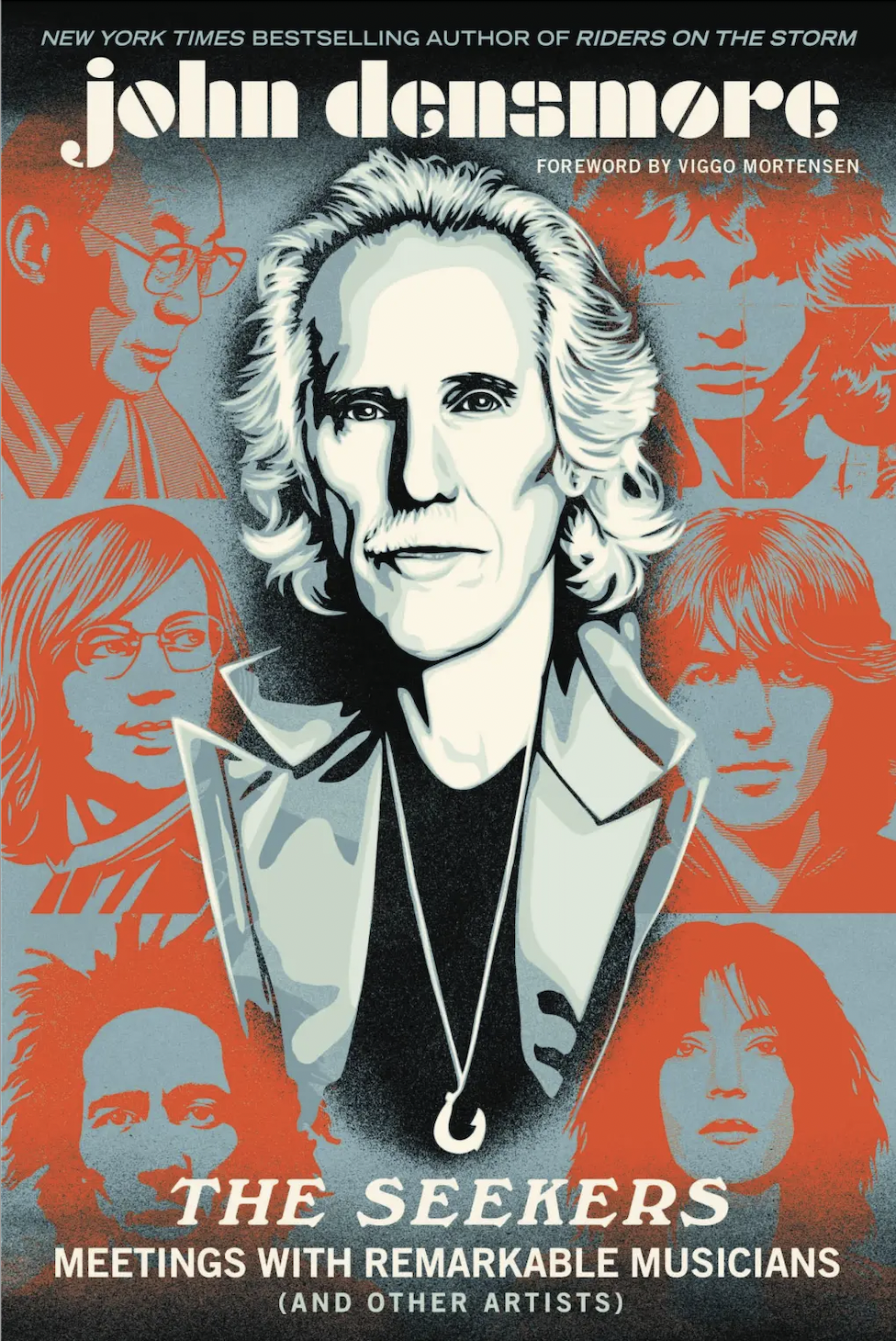John Densmore
Drummer, Author, Member of The Doors
“The drum was the first fucking instrument,” declares John Densmore. “The reason people move and dance is that they’re trying to get back to that heartbeat. It’s the heartbeat you hear in the womb that started the whole deal. An orchestra, a four-piece rock band, whatever it is, they’re trying to get back to that heartbeat.”
The rhythmic engine of The Doors and the man responsible for some of the most famous beats in rock & roll history has been obsessed with the universal, ancient call of this heartbeat has since his childhood in Southern California.
But first he began on the keys. “I took piano when I was eight, and I loved it,” he recalls. “I liked improvising on songs I had learned, rather than learning new ones. My teacher would give me songs to play, simplified classical and pop, and I got off on it.”
Eager to try his hand at another instrument, John at first fixated on the clarinet. His orthodontist, however, strictly forbade him to wrap his wired mouth around any reed instruments. The world has this medical professional to thank, then, for the fact that John Densmore headed for the drums.
“I was in the orchestra and the marching band with those stupid uniforms,” Densmore recollects. “I got a rush from playing with 40 musicians, no matter how amateurish…There’s power in a marching band.”
He became enamored, in his teens, with jazz, particularly with the drumming of Elvin Jones, whose evocative, muscular grooves with John Coltrane’s band influenced a multitude of rock musicians. He also became a frequent of the L.A. club scene, where bands like The Byrds and Love were a foretaste of things to come.
He met guitarist Robby Krieger, and the two began writing and playing together in a band called Psychedelic Rangers. Densmore next linked-up with Chicago-bred keyboardist Ray Manzarek, who was then playing in a group known as Rick and the Ravens with his brothers and a shy Floridian named Jim Morrison, who knew Manzarek from UCLA film school.
Eventually, Manzarek’s brothers left the band, and Densmore enlisted Krieger’s help. The foursome gelled, despite lacking an element most bands took for granted. “We couldn’t find a bass player,” Densmore remembers. “We tried once or twice, but we sounded like the Stones. A white blues band. Who cares? We wanted to be different.”
Even early in his career Densmore endeavored to incorporate a global flavor into his playing. “When we were playing in the garage, Bossa Nova was hitting the states,” he recalls. “I directly took the beat from ‘Girl from Ipanema’ and put it in ‘Break on Through’–it’s just stiffer. It’s a Bossa Nova beat with a rock feel. We were so turned on by Brazilian music. It’s so relaxed, but it’s tight. So sensual, but loose.”
During those prolific years between their debut album in 1967 and Morrison’s death in 1971, The Doors became one of the most influential bands in history. The band’s dark, sonically diverse sensibilities and Morrison’s invention of the “rock-shaman” archetype set them far apart from their peers.
Densmore discovered much inspiration for his own playing in the music of his favorite jazz players. “I found myself wanting to really comment on what was going on musically, especially with Jim–and Ray and Robby, on their solos,” he points out. “Just to push them or lay back or whatever was happening in the moment, to encourage that moment.
“My main thing is dynamics,” he elaborates. “I think this comes from the school orchestra, fortissimo [very loud] and pianissimo [very soft] and everything in between. That’s music. You can drum that way. Like in ‘The End,’ it’ll be real soft, and then bam-bam! I drop these cannonballs on the tom-toms–in a real quiet section! What the fuck am I doing? I didn’t even know. But later I listened and thought, oh, that heightened the tension, didn’t it? Bridges and verses–contrast them, loud and soft.”
Densmore continued his collaboration with his bandmates after Morrison’s untimely passing. In the early 1970s, he pursued a new passion–reggae–with Krieger in The Butts Band before the genre had had much impact in the U.S..
“We were in Jamaica, before reggae came here,” Densmore says. “The rightful geniuses of reggae–Marley, Jimmy Cliff and a few others–were coming to the States just after us, and they made a big impact. But we were on it before Clapton did “I Shot the Sheriff” or the Police or any of that.”
The three surviving members of The Doors reunited in the late ’70s for An American Prayer, an album of new music set to recordings of Morrison’s poetry. Densmore, however, was ready for a break from the rock world.
He found it in the Los Angeles theater scene, notably playing with Tim Robbins’ group, The Actors’ Gang, earning an L.A. Weekly Award for the music he created for Methusalem, which Robbins directed. “It was a blast”, Densmore says. “It was street theater–vibrant. It felt like the ’60s.”
His excitement about the spontaneity of theater led him to Peggy Fury’s famed acting class, a star-studded performance laboratory in which Densmore studied alongside future stars such as Sean Penn, Michelle Pfeiffer and Anjelica Huston.
“I didn’t have my drums, and I realized, I’m more nervous in front of 12 people than 20,000 at Madison Square Garden,” he laughs. “I thought, ‘This is good–this’ll keep me out of trouble! OK, I’m the instrument.'” But more than anything, the class made him realize that he was ready for yet another form of expression. “I realized I wanted to write; that’s what came out of that.”
Densmore authored several pieces, including the one-act Skins, in which he co-starred; he also earned an NAACP Award in 1987 as producer of Rounds.
He then began work on his autobiography, Riders on the Storm: My Life With Jim Morrison and The Doors, which was published in 1990. “It’s not as exciting as playing music, but you don’t have to depend on fucked-up musicians,” he says of the writing process. “And you can do it by yourself in the middle of the night. I’ve been trying to find the music between the sentences.” The New York Times Book Review called Riders “well-written and touching,” while USA Today deemed it “as good an account of the history of The Doors as has been printed to date.”
Densmore joined Manzarek and Krieger for The Doors’ induction into the Rock and Roll Hall of Fame in 1993.
He has since authored articles for The Nation, The Guardian, Rolling Stone and Los Angeles Times, Chicago Tribnue, Huffington Post, and Utne Magazine. He has worked on documentary films–notably the acclaimed Road to Return and Juvies (narrated by Mark Wahlberg)–and has also immersed himself once again in making music.
His lifelong adoration of jazz and his insatiable hunger for global sounds prompted the birth of the band, Tribaljazz.
“It was a real high to play with this global village,” Densmore volunteers. “It was fun for me, because there were two master African drummers. I used to work really hard with no bass player in The Doors. I was the pulse. With Tribaljazz, I could play with one hand and have it still be a strong groove.”
Tribaljazz featured guest vocals by Michael Franti (Spearhead, Disposable Heroes of Hiphoprisy) and actress Alfre Woodard. It was produced by Densmore at Henhouse Studios in Los Angeles.
“I had been mouthing off about being a jazz drummer since before the Doors,” Densmore relates. “So I finally put my sticks where my mouth had been.”
Densmore also expanded the global reach of his music by collaborating with Persian-music master Reza Derakshani, producing and playing on the album, Ray of the Wine.
“I met Reza and immediately thought, what an incredibly talented, extremely shy, charismatic Persian musician. He was playing all these exotic instruments and singing in Farsi,” Densmore remembers. “He asked me if I would take his music and arrange it with my Western influences. He trusted me because of my background.” Densmore found a trusted group of musicians, and when Reza came to L.A., they got to work.
In addition to his best seller Riders On The Storm: My Life With Jim Morrison And The Doors, John also wrote a second memoir, The Doors Unhinged: Jim Morrison’s Legacy Goes On Trial which was published in 2013. “It had to be written. It was a tough book, but I needed to get out what I had been through with the legal system. This book meant so much to me, that I passed on a NY pub deal because they were going to ruin it. I’m proud that many illustrious musicians wax on the back about how much they liked it.”
“These days John is still looking for the music in between the sentences and has completed a 3rd book called The Seekers: Meetings With Remarkable Musicians, that was recently released. “Each chapter is about a different artist who has fed me artistically. Writing is a little easier on a 76-year-old,” he says. “I gotta pace myself. No disrespect to Jim and his 27 years, but I’ve been in it for the long run.” The book is available in both print and audio format.
